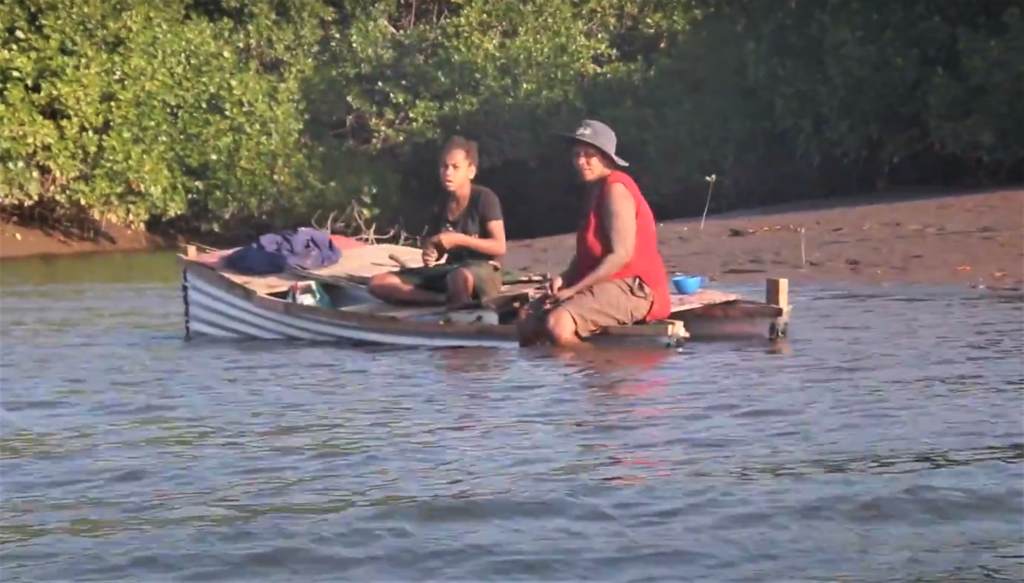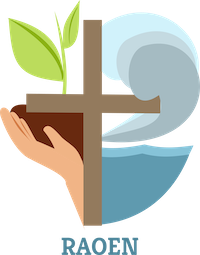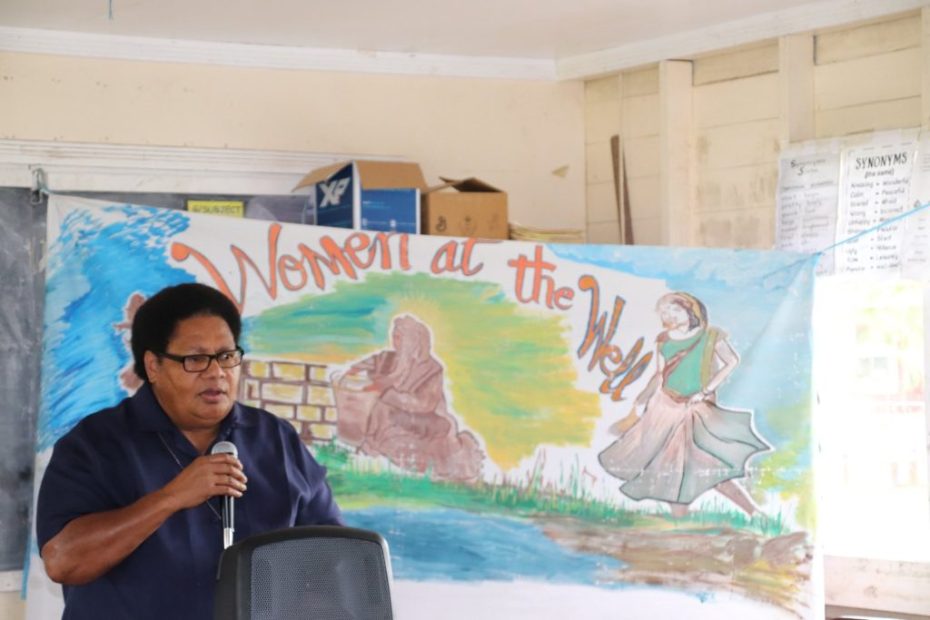Sr. Mariana Tevurega
Sr Mariana Tevurega, a Marist sister in Fiji shares to the River Above Asia Oceania Ecclesial Network (RAOEN) the threats to ecological integrity faced by communities in the province of Ba due to black sand extraction.
In her message, Sr Mariana emphasized the importance of listening to vulnerable communities and working with them in responding to ecological challenges that directly impact their lives, culture, and livelihood.
I am Mariana Tevurega a Marist Sister and I am an indigenous woman speaking on behalf of our women of the Province of Ba, in the Western Division of Fiji, which is the biggest Province in Fiji. I coordinate the Women’s Ministry desk at the Caritas Fiji in the Archdiocese of Suva. I like to take this opportunity to thank the organizers for this RAOEN dialogue on Synodality, especially for inviting me to share my story on the crisis of our Mother Earth in our little environment here. I will talk as a woman, on the topic of black sand extraction.
I speak on this platform on behalf of the women in our province. It is a very big concern that our very river that provided us with our livelihood for our families has been destroyed by this so-called heartless mining company. As a result, our women are witnessing the extinction mangrove and sea specifies like land crabs, fish and sea shells as the impact of this mining extraction that has taken its toll. Our river is our life. It’s like a beautiful mother who opens her arms to embrace us when we need her and also sustains us because it provides for us every day.
Some key ecological challenges we face as an impact of this mining is the sea level rising. And that rising sea-level causes coastal erosion, and it is very sad to see.
Mining has caused aggravation in our marine life in the shoreline areas, and there is disappearance of many sea and mangrove species. Today, our people have to hire fiberglass boats to fish in deep waters, because they can no longer catch fish in the shallow or mangrove swamps. The availability of livelihood in marine life by the mangrove and shoreline areas to fend for our families are no longer plentiful, because our river is being disturbed.
Women above all suffer the consequences as they are largely dependent on fishing, crabbing and collecting seashells as their livelihood.
The destruction of our riverbed is extremely serious so there is a great concern for the future of our children knowing that their natural environment has suffered damage. Gradually, we see the disappearance of our mangrove swamps.
Another key challenge which is serious is that our people whose homes are beside the coastal lines will have to relocate someday.
As indigenous we value and respect our land, our river, trees our marine life species, and everything else in our environment because we are customarily connected. This is our identity. We are part of our nature.
What has been done so for? We have had community efforts of awareness that have been carried out after some years of this mining existence when villagers came to realize that what was happening in the mouth of the river bed was serious stuff. We mobilized our educated people and our traditional leaders of the province to stand up and discuss issues with stakeholders and also with the government.
A team from the Archdiocese of Suva and faith-based organizations have been mobilized to conduct educational awareness providing scientific and spiritual enlightenment to our communities who live around the coastal areas. It’s an effort to heighten the knowledge and understanding so they know what is happening to what is close to their heart is in great phenomenon.

The villages were unaware of the seriousness of this mining extraction as they were only informed that the company was only conducting dredging. There was less knowledge of the immensity of the destruction that will pose threat to their ecological environment. So the visitations that we did and conducting awareness gave our people some pride and ownership to seriously make interventions to all concerned leaders, stakeholders and so on. And so, to minimize the situation that we are facing, there were many meetings held where our indigenous women would share emotionally the impact of mining and how they are noticing the disappearance of marine life species. Apparently, we found out at the end that there was a whole lot of lack of consultation, and sadly now, we suffer the consequences.
Discussions and dialogue are continuously happening between the people and the government. Many consorted efforts were been carried out by the traditional leaders of my province but only slow down the process of mining. I feel that there has been no respect or mercy by the government because all they are concerned about is the stability of their economy. If they have to do anything, our government, they just have to listen. Listen to our people in communities.
If there has to be any further and meaningful collaborations then we need to have a joint effort with other vulnerable communities whose land and ocean has suffered some consequences of environmental deterioration and to confront our government leaders with our petition, because we cannot do it alone. It has to be a solidarity between vulnerable communities in our island Fiji.
Fiji is very unique in a sense that Indigenous People own traditional fishing grounds, which in fact plays an important role in our vanua (land) and the sea. With that, we oversee and safeguard our biodiversity species. We look after our land, our sea, our forests, and our animals because we are very much connected to our environment. We have totems relating to the sea, to the fish, to the animals, to the forest, and so on. This is our identity. This is our pride, our life and who we are as natives of Fiji.
We have decided not to wait for the government to do anything. We are going to work together as concerned communities of the province to respond, to restore our environment, our Mother Earth who is crying in our little community.
Thank you.



